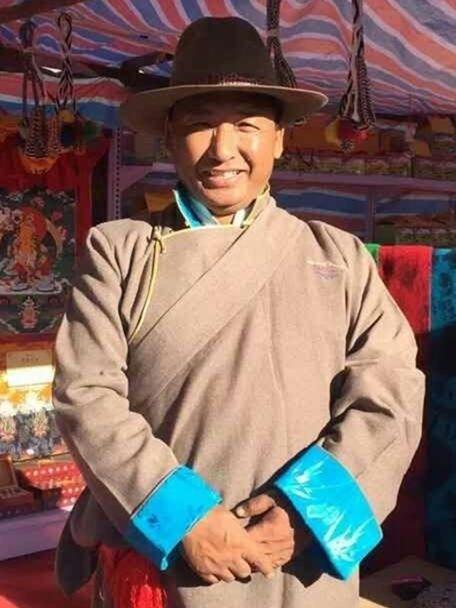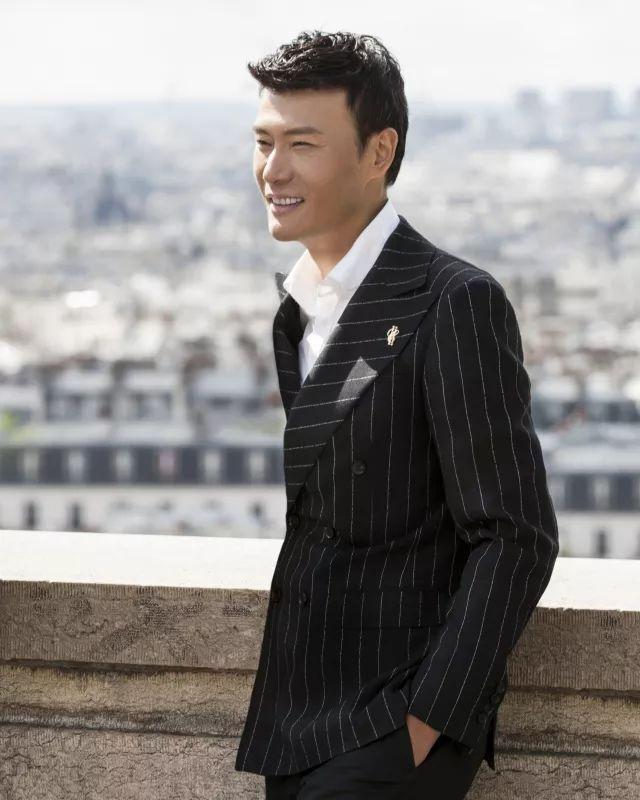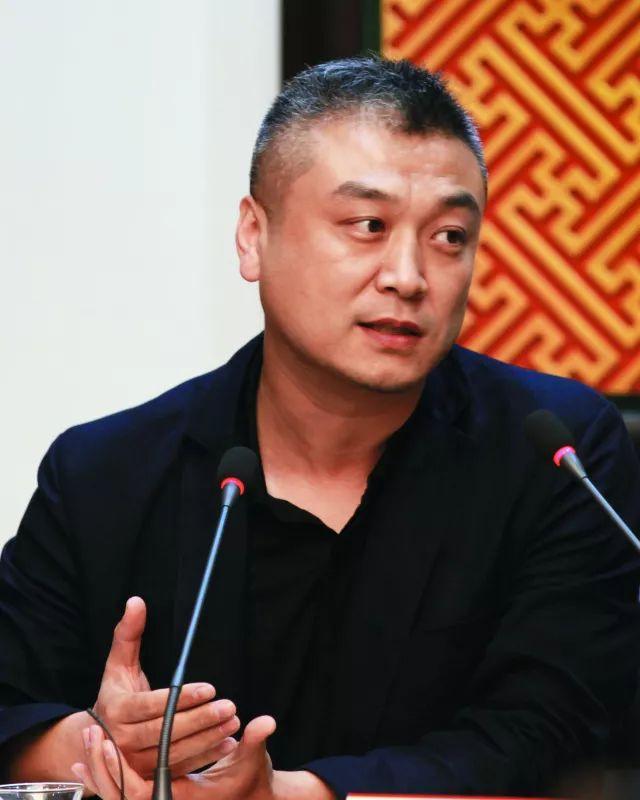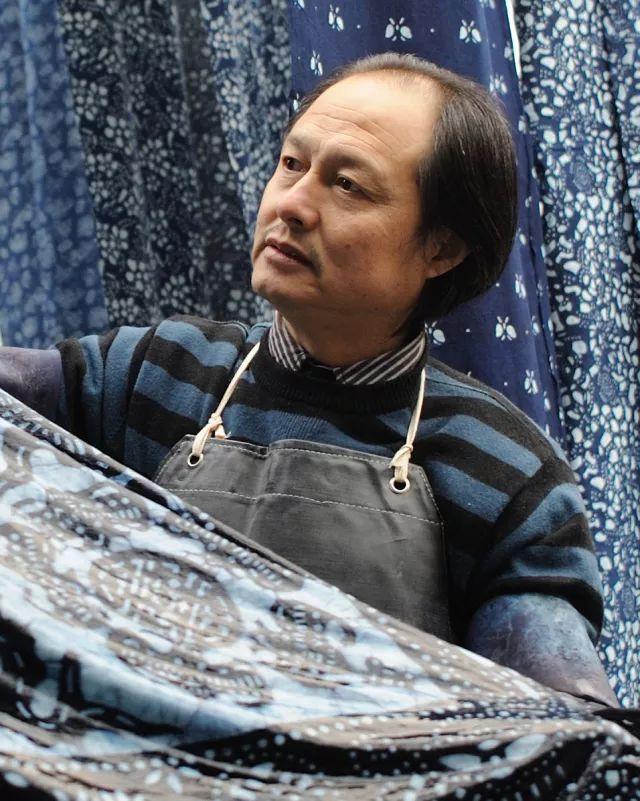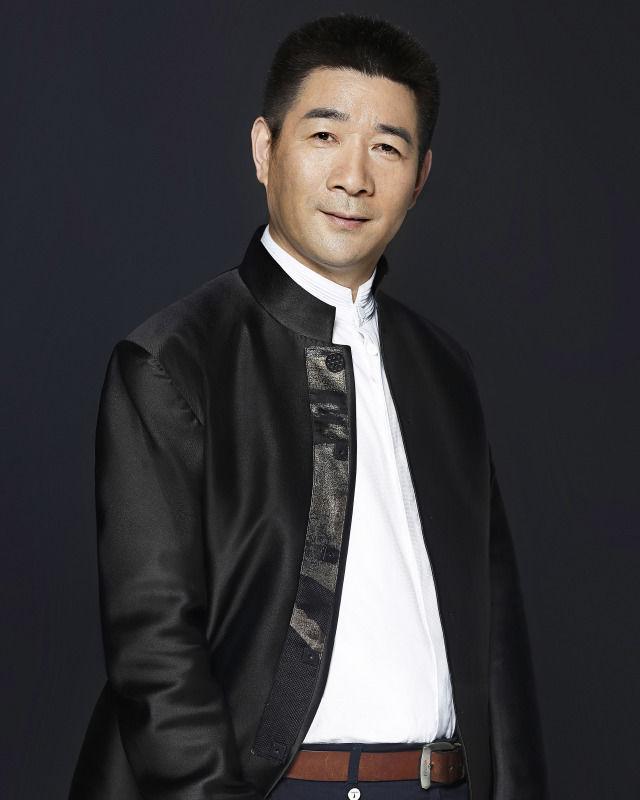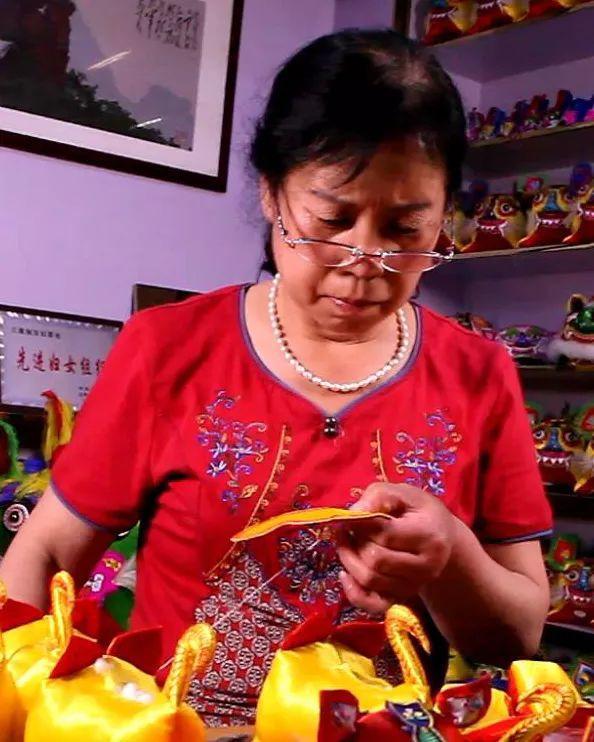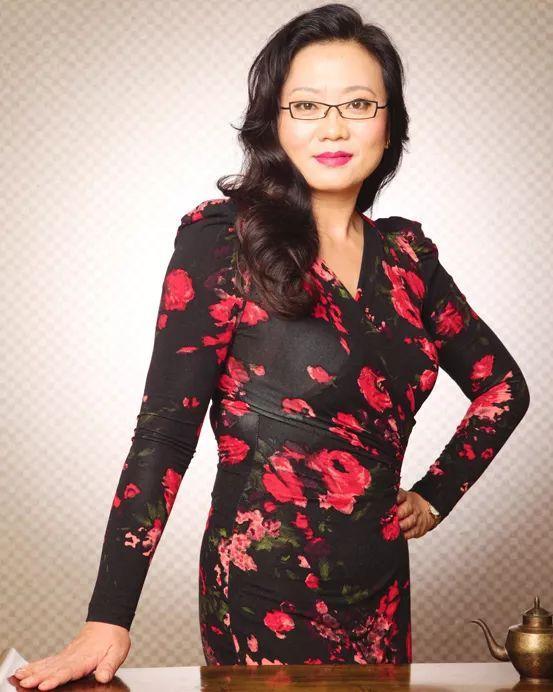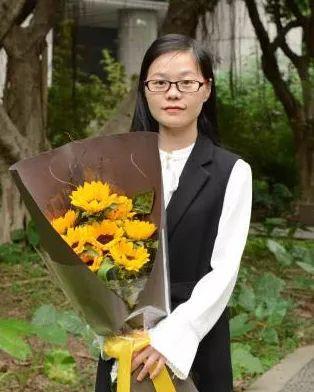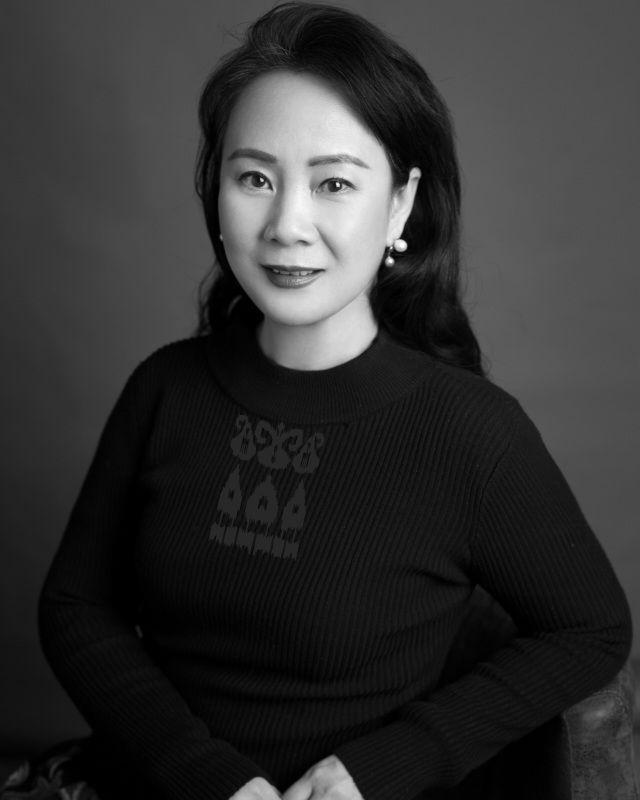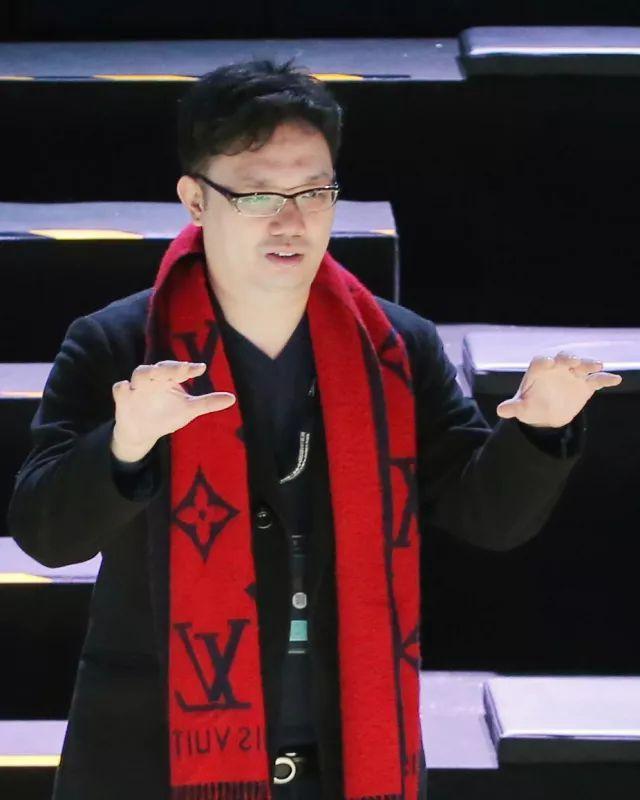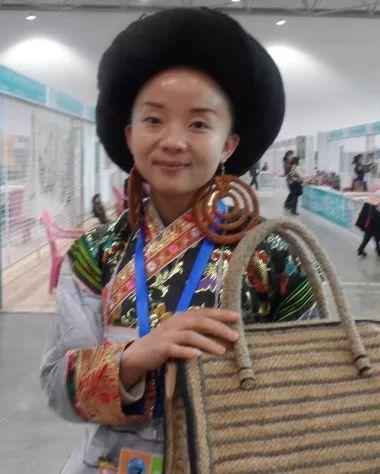In 2017, the “Wenyuan Lion City Cup†China Textile Non-legacy Promotion Ambassadors selection event was officially launched on August 1, 2017 as one of the first China Textile Intangible Cultural Heritage Conference series. The event is organized by the China Textile Industry Association, China Textile Industry Association Office of intangible cultural heritage, China Textile Industry Association Information Center, Hangzhou Xintiandi Group, Hangzhou Chunan County People's Government. A few days ago, the comprehensive collection, recommendation and strict initial evaluation of the organizing committee of the conference in the past two months have been successfully completed, and 15 finalists have been identified. In accordance with the procedures for selection and selection, the official website of the official cooperation media, textile and apparel weekly, the official website of Hangzhou Xintiandi and WeChat publicity list (listed by last name, in no particular order) and personal deeds, and now on October 1, 2017 From October 31st to October 31st, the online selection and expert committee comprehensive evaluation, and finally selected the 2017 "Wenyuan Lion City Cup" Chinese textile non-legacy promotion ambassador. The results of the selection will be officially announced at the first China Textile Intangible Cultural Heritage Conference held in Wenyuan Lion City, Qiandao Lake, Hangzhou from November 28th to 30th. Since the launch of this selection activity, it has received extensive attention and enthusiastic participation from textile industry entrepreneurs, designers, textile non-genetic inheritors, research experts and people from all walks of life. 01 Bassan Tibet Yu Clothing Co., Ltd. (Naidong District, Shannan City) General manager Reasons for shortlisting: Rescue and protection of the national-level non-legacy Tibet “Zebel†weaving technology on the verge of loss, so that more people can master the “Zeguer†weaving process, so that it can rejuvenate and revitalize. The traditional weaving skills of Zezel have a history of thousands of years and have always been the traditional cultural treasure of the Tibetan people. "Zezel" is a pure hand-made fine wool woven textile product, also known as å“—å½, because it is unique in the local town of Zetang, it is the best in the national non-testament, because of its soft texture, Durable and durable, the lines are clear, the winter is warm and cool in summer, and the cleaning is not deformed. In the old days, the "Zezel" costume was once a special offering for the Dalai Lama. Basang overcame many difficulties, rushed to appeal, and received guidance and assistance from governments at all levels and relevant departments. In the rescue process of “Zezel†in the past ten years, Ba Sang has made painstaking efforts to effectively protect and pass on the “Ze Teier†weaving skills that are on the verge of loss. He devoted himself to research and production of Zezel's production tools, and specially hired Zedong's 86-year-old Gaoling Zeer technician to recruit children from poor families in Zetang Township to hold the "Ze Teier" textile skills training class, which was taught by the old technicians. The entire process of the "Ail" textile. Up to now, Bassan has organized various forms of “Ze Teier†textile skills training classes to make the children of poor families in Zetang Town a beneficiary group and contribute to local poverty alleviation. In 2008, Ba Sang founded the Nadong County Ethnic Hand-woven Professional Cooperative, which successfully explored and saved Zeitel’s traditional ethnic handicrafts. In 2010, it was identified by the People’s Government of the Tibet Autonomous Region as the second batch of autonomous regional intangible cultural heritage. In 2013, he served as the representative inheritor of the weaving skills of the project “Ze Teierâ€; in 2013, he served as the standing committee member of the Shannan District Political Consultative Conference in Tibet. In the same year, on the basis of the Nadong County National Handicraft Weaving Professional Cooperative, the company established and established the Tibet Maoyan Garments Co., Ltd. General Manager: 2015 won the National Skills Master Award; in 2016, he served as the Standing Committee Member of the Shannan Municipal CPPCC; in 2017, he served as a member of the Tibet Autonomous Region Federation of Industry and Commerce. When the first piece of Zezel was successfully restored, Basan saw hope and was full of confidence in the future of Zezel. He believes that by inheriting and carrying forward the excellent culture and skills of the nation, more people can understand and master the weaving process of the intangible cultural heritage “Zezeerâ€, so that this precious cultural heritage can be passed down and carried forward. 02 Xu Jianshu Chairman of Beijing Lawrence Xu Clothing Co., Ltd. Reasons for shortlisting: Unconventional use of traditional Chinese craftsmanship to create a world heritage classic. Adhering to the characteristics of national art, using Western-style three-dimensional cutting, the combination of Chinese and Western, the beauty of Chinese non-legacy and embroidery is presented on the world art stage. The name "Xu Jianshu" sounded strange, but his other name "Lawrence Xu" was as good as it was. Lawrence Xu graduated from the Fashion Design Department of the Central Academy of Fine Arts and later studied in Paris. He is a proud student of the famous French fashion designer and artist Francis De Lok Lang. In 2013, Lawrence Xu became the first Chinese designer to be invited by the French Apparel Association to enter the 2013 Paris Fashion Haute Couture Week T-Taiwan. It is the only designer in China who has the qualification to publish high-end French clothing. Born in the family of architects, he has a strong interest in Chinese traditional culture since childhood. And clothing design seems to be his natural talent. He does not like to play cards according to common sense. The biggest feature in design is the combination of Chinese and Western, fully westernized draping, and the design elements are extremely classical and oriental. The heritage of Chinese traditional culture, the spirit and temperament of Western liberal culture, has become the creator of such a beautiful myth. In the thick Chinese classical charm, with the Western-style three-dimensional tailoring, he completely subverted the concept of the Chinese style in the past, and explained to the world what is the real Chinese style and international fashion. The "Oriental Xiangyun" robes he made for Fan Bingbing had been stunning at the Cannes International Film Festival in May 2010. In 2011, the three-dimensional upgraded version of this dress was collected by the British V&A Museum. Today, it is still regarded as a model of Chinese style. He will always remind himself that he must work hard to make the foundations solid, to make the traditional culture good, and then to innovate. Such a poetic mood can naturally blend into the innovative design of clothing. In 2013, he was the first Chinese designer invited by the French Apparel Association to board the Paris High School Clothing Week. The work “Jin Yunjin†has also been selected by the international media as one of the 15 most luxurious costumes in the world. In January 2015, I re-entered the Paris High Fashion Week to release the “Dunhuang†series, which is well-known in Europe. "China Custom" Lawrence Xu 2017/18 autumn and winter Haute Couture series released a new uniform designed for HNA, so that the concept of Gao Ding is no longer far away, but it is really integrated into daily life and shows the world of China to the world. Feelings and trends. In July 2015, in the world fashion capital of Milan, Lawrence Xu, who is known as the first Chinese red carpet designer, held the Nanjing Zhou Yunjin show in Milan. In August 2016, the main fashion designer who was invited as the “G20 Summit Opening Ceremony†designed a gorgeous and dazzling dress for the performing artist. In October 2016, we joined hands with the “2016 Nanjing Historical and Cultural City Expo†to hold the first big show “Jinxiu China†in Nanjing Yucheng Zhonghuamen. In July 2017, Lawrence Xu signed a strategic cooperation with Anshun City of Guizhou to further promote the inheritance and development of intangible cultural heritage such as Anshun batik and Miao embroidery, and fully explore the artistic elements of Miao embroidery and batik, relying on Lawrence Xu in the international The influence of the fashion industry will bring Guizhou Miao embroidery and batik to the world. 03 Sun Dongning Director, Center for Chinese Traditional Skills Research and Protection, Prince Gong's Museum, Ministry of Culture Reasons for shortlisting: Treating the non-legacy research and traditional textile technology protection work in the new era with great feelings, big pattern, and large perspective, and creatively propose innovative working models and systems based on the classification and protection of traditional Chinese art. In the past 15 years, Sun Dongning has nearly 200 days of field research work experience each year, accumulated a large number of field research experience and first-hand research materials, providing professional methods and theoretical support for the development of non-legacy protection. As an academic leader, he undertakes the work of “National Intangible Cultural Heritage Display and Protection Baseâ€. He is currently a member of the “National Intangible Cultural Heritage Expert Review Group†of the Ministry of Culture and a member of the “China Traditional Village Review Expert Group†of the Ministry of Housing and Urban-Rural Development. From the perspective of the non-legacy protection work in the new era, we will continue to improve the non-heritage protection research system. From the persistence of the field to the help of the new platform, along with the non-genetic inheritance and protection of the heart. Sun Dongning has a high level of academic theory and rich experience in non-legacy field research, especially in the national intangible cultural heritage-traditional art project research and exhibition planning work, and innovatively launched the "Chinese intangible cultural heritage." The research on the classification and protection of traditional techniques is the core of the academic work of the "two two three four five working mode", and has made great achievements in professional research. He graduated from the Central Academy of Fine Arts and was the first to receive a master's degree in non-legacy and folk art. He is the first non-legacy teacher of UNESCO. As an academic leader, he established the “Chinese Traditional Skills Research and Protection Center of the Ministry of Culture (King Wangfu)â€, and undertaken a series of activities commissioned by the Ministry of Culture of the Ministry of Culture to create a national exhibition of “Investing in Intangible Cultural Heritageâ€. The work brand, its own professional and scientific research work advantages provide professional working methods and theoretical support for the development of non-legacy subjects in relevant universities. He is also a professor at the Graduate School of the Chinese Academy of Social Sciences, a postgraduate tutor, an academic member of the China Non-legacy and Traditional Skills Protection Teaching Steering Committee, and an office director; a professor at the Central Academy of Fine Arts and a professor at the Beijing Institute of Fashion. He has undertaken the first-level subject declaration and team building of the master's degree in non-legacy and brand design in Shandong Province. Sun Dongning is responsible for the National Intangible Cultural Heritage-Traditional Textile, Weaving, Printing, Dyeing and Embroidery Skills Research Project of the Ministry of Culture. At the same time, as the head of the research group, he completed the National Social Science Fund Art Project “Non-legacy Archives--Chinese Traditional Craftsmanship Research "Related research work to fill high-level blanks in non-legacy humanities and social sciences research fields; publish 9 monographs, complete a number of provincial art science key projects, publish many core journal articles, and edit "China's Time-honored Brands and Traditional Skills" series 2 More than ten volumes. He undertakes the research project on the classification and protection of traditional intangible cultural heritage in China, and organizes and curates a series of traditional costumes and textile, weaving, printing, dyeing and embroidery exhibitions, performances and academic activities of the National Intangible Cultural Heritage Exhibition and Protection Base. On June 5, 2017, the resources of all parties will be implemented during the “Culture and Natural Heritage†day to implement the “Innovative Chinese Non-material Cultural Heritage†series of non-legacy cultural show. The vivid typical cases of contemporary life have been well received by the community. 04 Liu Jia Editor-in-Chief of Textile and Apparel Magazine Reasons for short-listing: Reflecting the responsibility of outstanding media people, through the news reports and new media communication, the textile industry and the community can feel and understand the infinite charm and the significance of non-legacy protection. Over the years, Liu Jia has visited textile non-legacy studios, enterprises, cultural stations, colleges and universities, and interviewed many experts, scholars, practitioners, practitioners, and designers and enterprises concerned in the field of textile non-legacy. Home, a lot of in-depth reports on textile non-legacy related activities. In the special reports, series reports and related activities of textile and clothing weekly magazines, the information of textiles is transmitted, shared, communicated and exchanged, playing an important role of communicators and intermediaries. Over the years, not only personal attention to the survival and development of textiles, but also led the team to carry out special reports and series of reports on textiles. In 2017, in the official WeChat subscription number of Textile and Apparel Weekly, we launched a series of reports such as “Textile Non-legacy†and “Non-Genetic Tourism State Bankâ€, which launched around the non-legacy show, non-legacy academic discussion, and non-heritage research collaboration. The form is novel and informative. In 2016, Textile and Apparel Weekly hosted the first China Uniform Design Competition, deeply intertwined textile experts and scholars, textile non-genetic inheritors, design masters, and entered a number of textile and clothing colleges, the classic concept of famous masters and wonderful The ideas were passed on to the young students, inspiring more creative ideas about textiles; in the same year, the newsletter "The Art of Today is incomparable to the Chinese Fine Embroidery Art Exhibition in Paris", while presenting contemporary embroidery skills, from the modern textile industry The report on the promotion of innovation from the embroidery process has been reported and has been forwarded by many media. In 2014, the special report “Intangible Dreams Approaching the Intangible Cultural Heritage of Textile and Apparelâ€, a large series of reports, “The Splendid and Essence of Textiles and Non-legacy Series Reportsâ€, the series reports in the form of stories, detailing each non-legacy history. The story, the story of the inheritor, the status quo of development, the value of promotion, the modern application, and the construction of a textile powerhouse won the first prize of the 3rd National Textile Industry News Award of 2014 Changle Cup. In the past ten years, Liu Jia has realized the historical treasures of textiles through the attention and reports of textiles, and it is closely related to fashion life. He feels the ideals and reality of non-genetic inheritors, his heart and difficulties, and numerous The self-confidence and love of traditional crafts in the textile and garment industry, the enhancement of national strength, the promotion of policies, the improvement of cultural consciousness and cultural self-confidence, the non-genetic inheritance of textiles and practitioners ushered in the best era. 05 Xu Hongzhou Economic Daily, Director of the Interview Room, Department of Information Reasons for shortlisted: Give full play to the appeal and influence of the central media, conduct in-depth interviews and reports on textile intangible protection and innovation, and form a deep observation and reflection, and promote the sustainable development of textiles. As a journalist, Xu Hongzhou actively responded to the national call for promoting Chinese traditional culture and revitalizing traditional crafts, and conducted in-depth coverage of textile non-legacy work and activities. With the pen and the text, the textile is not a drum and a call. Over the years, in the "Economic Daily" and its website, the client and other new media, published a number of exclusive in-depth reports and analysis. Mainly: May 20th, 2017, 6th edition combined report: Communication "Innovation, let old crafts dye new life" + comment "Revitalization of traditional crafts requires multi-party synergy"; June 11, 2017 5 edition combination report: communication "inheritance Millennium, just to meet you" + comment "protection of the soul and roots"; August 4, 2017 7 edition comment: "Let the "non-legacy" products into modern life." Xu Hongzhou realized through long-term in-depth interviews on the protection and inheritance of textiles. As an important part of China's non-legacy projects, textiles and non-legacy not only have a long history, but also closely related to modern life and fashion. Fully exploring and transforming the rich resources of textiles is the source of vitality for the innovation and development of the textile industry in China. Let traditional crafts better enter modern life, inherit in ascension, develop in innovation, and the state is in action. The "protection chain" of non-genetic inheritance development and the "industrial chain" of the textile industry are effectively linked to promote the integration and development of traditional crafts and modern industries, and the textile industry is in action. For the textiles and the drums, the media is duty-bound. 06 Wu Yuanxin Dean of the Institute of Non-Legacy of Nantong University Reasons for shortlisting: use cultural vision, cultural vision, dedication, responsibility, watch and promote traditional skills, and rescue, protect, research and innovate the national intangible cultural heritage blue prints for 40 years. Wu Yuanxin, the representative inheritor of the first batch of national intangible cultural heritage Nantong blue printed cloth printing and dyeing technology, enjoys the special government allowance of the State Council. For more than 40 years, we have done our utmost to protect the inheritance of the national intangible cultural heritage blue calico, and have done a lot of effective work in the rescue, research, innovation, inheritance of blue prints, and the cultivation of young non-genetic inheritors. Mr. Feng Yucai commented: "Fortunately, Mr. Wu Yuanxin, who has been conscious of a culture and the spirit of consistent and persistent in the past 30 years, has retained a large number of blue-dyed remains, and has been scientifically organized and hand-inherited from the original ecology. ." While reserving the physical remains of the blue printed cloth, Wu Yuanxin founded the first professional museum of blue printed fabrics in China, protecting nearly 300,000 pieces of traditional prints and other traditional prints that were lost in the folk blue prints. The excellent traditional blue calico pattern is used for system classification, numbering, shooting and preliminary generation work, and a blue print pattern database has been established. The "Chinese Blue Printed Cloth Archives" edited by Wu Yuanxin has been included in the Chinese Folk Cultural Heritage Rescue Project. The project has been launched in 2015. It is estimated that ten volumes of blue prints will be published in ten years, inheriting intangible culture. The context of heritage provides physical data protection for in-depth research. In terms of technical research, on the basis of collecting rich physical materials, Wu Yuanxin combined with years of technical inheritance and practice, published the collection of "Chinese Blue Printed Patterns" for more than ten years, the collection of volumes, and the series of folklore books. Six monographs, such as Blue Printed Cloth and Nantong Blue Printed Cloth, and published relevant papers in national core journals and other provincial and provincial journals. In-depth research on the origin and development of the related techniques of blue printed fabrics, systematically combing traditional folk printing and dyeing for two thousand years, published the national key book "Chinese traditional folk printing and dyeing skills", and assumed the National Social Science Fund. The key topic of art is "Chinese Blue Printed Pattern Research". In the creative design of the blue printed fabric, Wu Yuanxin innovated and produced nearly a thousand blue printed fabric patterns, and successively designed blue printed fabrics such as blue printed fabrics, bags, wall hangings, handicrafts, shoes and hats. The innovative works have won many national gold and silver awards in the arts and crafts industry. The works have been invited to hold blue print exhibitions in the United States, Britain, Germany, France, Italy and Russia. The National Museum of China Silk Museum, Beijing Cultural Palace of Nationalities Museum, Tsinghua University, Tianjin University, the Central Academy of Fine Arts, Han Meilin Art Museum outstanding works donated more than 900 pieces. In the inheritance of skills, Wu Yuanxin pays attention to cultivating young inheritors, and through the dyeing workshops, family-style inheritance, college teaching, social training, inheritance and dissemination of blue print fabric skills, has set up a traditional dyeing and weaving studio in Tsinghua University Academy of Fine Arts. In the Central Academy of Fine Arts, Nankai University, etc., the school opened a handicraft elective course, established the Nantong Blue Printed Fabric Museum branch in Tianjin University, opened a traditional printing and dyeing course for graduate students at Suzhou University, and created the Blue Calico Art Institute and the non-National University in Nantong University. heritage Institute, undertook in 2016 the national Endowment for the Arts "blue calico printing and dyeing skill training young talents" project, China's non-genetic order of population research training program consultant was hired faculty members and library Ministry of culture. 07 Li Jianhua Chairman of Hangzhou Wanshili Silk Culture Co., Ltd. Short-listed reasons: Engaged in the silk industry for more than 30 years, taking silk culture and industrial renaissance as a career pursuit. It advocates the nourishment of industry by industry, the anti-feeding culture of industry, and the explorer and disseminator of silk culture and industry research. Silk is a world-class intangible cultural heritage, an important part of China's excellent culture and traditional craftsmanship, and a valuable asset left to future generations by ancestors. How to protect and inherit non-legacy crafts is a social issue and a corporate responsibility. Li Jianhua has always advocated and publicized the social and cultural values ​​of silk weaving skills. I hope that Wanshili will become a platform for communication and exchange, so that more people can appreciate the beauty of silk craftsmanship and let silk weaving skills be circulated forever. Over the years, he has devoted himself to the excavation and research of silk culture. He has published books on silk culture including the popular science books of soft science, the encyclopedia of silk culture, the Silk Road of Shenzhou, and the silk of silk. More than 4 million words, such as "Dream of the Red Dream", "Silk Code", "G20 Silk Code", "Thousands of Silk", "Infinite Scenery", "Chinese Silk King" and other books. In 2014, the silk culture was brought to CCTV's "Hundreds of Lectures", which talked about the silk code in "Dream of Red Mansions", and promoted the society to raise the enthusiasm for paying attention to silk culture and regaining silk life. Recently, invited by CCTV again, it will go landing "Lecture Room", the depth of national initiatives to decrypt all the way along the spiritual core. In order to further promote the spread of silk culture, enrich and expand the propaganda channels, and recorded various forms of silk culture TV programs, including: silk culture talk show "Words on Silk", silk culture documentary "Silk World", silk culture mouthwash There are nearly 200 silk cultural programs such as Silk Road Password. In 2013, under the concept of Xi Jinping's proposal to jointly build the “Silk Road Economic Beltâ€, the Silk Road has been integrated into the global vision with a brand-new attitude after more than 1200 years of silence. In this context, the China Silk Culture Forum with the theme of “Silk Road, Chinese Dream†was launched, and the strategic concept of co-constructing the “Silk Road Economic Belt†was launched, which opened a new journey for the rejuvenation of Chinese silk culture. Discussing how the silk industry inherits and promotes Chinese silk culture and builds a Chinese silk national brand under the background of the country's “Silk Road Economic Beltâ€. In 2017, the “One Belt and One Road†Silk Culture Summit Forum was organized to bring together experts and scholars from the silk, culture and education sectors to discuss non-legacy skills, silk culture and industrial development. In January of this year, the richest silk products received by Qi Fuzhong during his visit to Hangzhou were unique in everything, and the Chinese intangible cultural heritage, carved velvet craft, was carefully crafted on silk. The project of “National Treasure Going Home†in the Dunhuang Tibetan Buddhist Cave was launched. It is the responsibility of the protection and dissemination of silk culture. It took three years to reproduce 12 ancient paintings from the French Jimei Museum that have been lost for over 100 years. Dunhuang Museum. These 12 ancient paintings were hidden in the Tibetan Buddhist caves at the Mogao Grottoes in Dunhuang. They were lost overseas with a large number of Dunhuang instruments hundreds of years ago. Since then, they have been collected by the Jigme Museum in France, and it is rare for the Chinese to see you again. Nowadays, everything uses high technology to "return" Dunhuang to the millennium ancient paintings. Luo Huaqing, deputy dean of the Dunhuang Academy, could not help but sigh: "This is a good relationship for Dunhuang, and it has made tremendous contributions to the inheritance of Chinese culture." 08 Li Aiping Chairman of Jiangxi Zuoquan County Samsung Garment Co., Ltd. Short-listed reasons: rescue, excavate, collect, and organize the left-hand folk craftsmanship represented by Jiang Junhu, so that the provincial non-legacy generals won 11 national appearance patents and were recommended as national gifts to the world. The Zuoquan folk handicrafts, which are represented by the generals, have strong local flavors and local characteristics. In 1942, the deputy chief of staff of the Eighth Route Army, General Zuo Quan, slammed the Ma Tian Cross Ridge. The folks commemorated the general of Zuo Quan. The local people called the cloth tiger "the general tiger", which symbolized a spirit of perseverance. The provincial intangible cultural heritage general tiger has obtained 11 national appearance patents. The production process is unique. It is made of traditional gold, drawn yarn and hand-embroidered. It has profound cultural heritage and exquisite craft connotation. It is on the verge of loss after the Cultural Revolution. . Since 2000, Li Aiping, who grew up in this red hot land, has been influenced by Zuoquan folk art since childhood, and has a unique love and understanding of Zuoquan folk art. He has begun to rescue, excavate, collect and organize Zuoquan folk craftsmanship represented by the military tiger. , saved this superb folk treasure. In 2009, the general tiger was selected as the “New China National Ceremony Artists†and was recommended for the National Gifts. The General Tigers then stepped out of the mountains and went abroad. Li Aiping founded Zuoquan County Samsung Garment Co., Ltd. in 1992 as a chairman and designer, and devoted himself to studying Zuoquan folk craftsmanship and costume culture. In the red hot land of Zuoquan, she traveled to more than 300 villages in the county. She asked the 100-year-old man to teach his skills and invested more than 1 million yuan at his own expense to complete the inheritance and protection of the general craftsmanship and folk costume culture of the generals. On the basis of collecting and arranging samples of folk artists, more than 50 folk crafts have been copied, and new crafts and new processes for folk crafts have been introduced. In 2015, Li Aiping planned a Chinese-style children's clothing and apparel project to promote the traditional costume culture and the essence of traditional handicrafts. At the same time, it promoted the local women's entrepreneurship and employment , and promoted the construction of a socialist harmonious new countryside. By the end of 2016, a total of 3,000 rural women had been trained, and 500 rural left-behind women had achieved local employment through processing handicrafts. The annual per capita income was more than 3,000 yuan, and the industrial chain was basically formed, effectively promoting rural economic development. 09 Flooding Chairman of Fujian Hao Brand Fashion Technology Co., Ltd. Short-listed reasons: The first to explore the creation of non-genetic inheritance and protection funds, as a corporate social responsibility, has always been "to let Chinese fashion in the world" as the mission, and constantly accumulate the "China, is the United States" brand core value. In 2008, under the advocacy and promotion of Hongxu, Yupai and the Academy of Fine Arts of Tsinghua University founded the non-genetic inheritance and protection fund. In the past 9 years, with the joint efforts of experts, scholars and non-genetic inheritors, many excellent projects and scientific research achievements have been accumulated. It covers 35 regions across the country, covering traditional Chinese handicrafts, national culture, national costumes and other fields, with more than 60 projects. In order to let more people know about the beauty of the singularity, the plaques continue to innovate, through a series of planning: non-legacy series documentary, non-return fund fifth anniversary exhibition, China non-legacy summit forum, etc., let the non-legacy culture return to the public vision and achieve protection With heritage, and a new life in modern fashion. In 2013, it coincided with the proposal of the national “One Belt, One Road†strategy. The economy, culture and art of “One Belt, One Road†have become the hotspots of street alleys. The brand has responded positively. In 2015 and 2016, it has created “One Belt and One Road†for two consecutive years. The journey of non-legacy (seeking dreams, looking for dreams), searching for the “One Belt, One Road†invisible civilization with a unique perspective and depth. In July 2013, the Intangible Cultural Heritage Research and Protection Fund, jointly established by Yupai and Tsinghua University, celebrated its 5th anniversary. Through five years of research, Yanpai and Tsinghua University's Intangible Cultural Heritage Research and Protection Fund have achieved fruitful results, covering research projects in traditional Chinese handicrafts, national culture, and national costumes. In July 2014, Qipai and Tsinghua University jointly held the first intangible cultural heritage research and protection summit forum and the renewal ceremony of the non-legacy fund of the non-legacy fund. As the benchmark brand of Chinese men's apparel, it took action from the social responsibility of the company. Commitment to let the intangible cultural heritage be carried forward in the inheritance. In October of the same year, the Qipai Intangible Cultural Heritage Fund project was integrated and promoted, and won the 2014 China Advertising Great Wall Award advertiser award marketing communication gold medal. In June 2015, the brand "China, is the US documentary (the second season), won the sixth (2014-2015) Tigers Awards, apparel, sports and leisure products category · Excellence Award. In August of the same year, 柒The Tsinghua University Intangible Cultural Heritage Research and Protection Fund 2015 final meeting was held at Tsinghua University on June 27. The non-legacy protection was based on the theme of “Seeking Dreams†and invited Shang Wenyi and Ren Join . In August 2016, the unlicensed exploration tour of the “Xun Meng Silk Road†was kicked off in Xi'an, the ancient capital of the millennium. This is the “One Belt, One Road†since the brand “Seeking Dreams†in 2015. Another new journey for the theme of the unexplored journey. As the first private enterprise in China to advocate and practice the research, protection and inheritance of intangible culture, the brand has always regarded non-legacy research and protection as the unshirkable social responsibility, actively inheriting and actively transforming. In October of the same year, the brand "China is the United States" to find the dream of Haisi, and won the 23rd China International Advertising Festival China Advertising Great Wall Award Media Marketing Award (Excellence Award). In July 2017, the “China, is the United States†search for the dream of Silk Road, and won the 2017ADMEN International Awards for creative planning. 10 Zhou Jie Director of Production and Information Management Center of Silk Road Holding Group Co., Ltd. Shortlisted reasons: deeply influenced by the history and culture of silk, creating extraordinary value with ordinary work. Discover the inheritance of silk culture, continue to innovate in craftsmanship, and showcase the Chinese silk civilization to the world with rich products. The Silk Road Holding Group in Huzhou uses the “Silk Road†to name the company, which is broad and far-reaching. Huzhou is one of the birthplaces of silk civilization, and the Silk Road has a profound historical and cultural origin. The history of thousands of years, the span of tens of thousands of miles, the world is familiar. Since Zhou Jie entered the Silk Road Holding Group, he has been deeply influenced by corporate culture, and his love for the Silk Road has become the driving force for employees to advance. In the eyes of corporate employees, the Silk Road symbolizes the tenacious will of entrepreneurs to struggle and to be unyielding. Singing all the way is the song of victory that never fails. The Silk Road symbolizes the economic and cultural exchanges between the East and the West and the future direction of the international development of enterprises. Silk is the quintessence of China. As a member of the Silk Road Group, Zhou Jie insists on “revitalizing national silk and building an international brand†and is committed to carrying forward the Chinese silk civilization. Constantly explore and inherit the silk culture, continue to innovate in technology, and promote the Chinese silk civilization to the world with rich products. In the ordinary work, he actively participated in the inheritance, protection, development, innovation and promotion of silk textile intangible cultural heritage, and deeply felt the sacred mission and great responsibility. Over the years, Zhou Jie has worked hard with enterprise partners to study, innovate and develop, promote and promote silk culture and skills, and work hard to promote the sustainable development of silk intangible heritage. Since 2008, Zhou Jie has led and participated in all the work related to the inheritance, protection, innovation and promotion of the Silk Textile Group's intangible cultural heritage of silk textiles; participated in the special items of Huzhou Yongchang Silk Co., Ltd. under the Protection and Promotion Group. Lushan yarn, "2010 Shanghai World Expo China Pavilion Lounge" silk national treasure "in the planning and publicity, 2010 first China silk Festival" National silk innovative products Gold "silk bedding" Mejia Princess "," leopard feather Fantasy "of Planning, R&D and publicity; Participated in Huzhou Yongchang Silk Co., Ltd. (founded in 1919), successfully applied for the old name of Zhejiang Province, and the subsidiary of Huzhou Zhesi Second Factory Co., Ltd. (founded in 1946) successfully applied for the old name of Huzhou City; The group's subordinate Huzhou Zhesi Second Factory Co., Ltd. (founded in 1946, "Linghu Silk Factory") industrial heritage protection, publicity, development work, and presided over the application of national industrial heritage work. 11 Xia Hua Chairman of Yiwen Clothing Co., Ltd. Reasons for short-listing: Reflecting the social responsibility of outstanding entrepreneurs, consistently, creating top-level apparel brands with ingenuity, and exploring fashion attitudes to explore sustainable and replicable traditional craft ecosystem construction models. Xia Hua, currently the chairman of Yiwen Group and the vice president of China Garment Association, has been named one of the "25 Chinese in the global fashion industry" by Forbes, the "most influential entrepreneur" and the "Chinese economic woman of the year" "China's business people", "China's top ten women's outstanding management innovations", "Chinese fashion 20 years of meritorious figures", "Top Ten Entrepreneurs Affecting People's Economic Life", "China's Top Ten Marketing Persons" "Business Mulan of the Year", "Top Ten Women's Excellence in Management and Innovation in China", "Chinese Business Women of the Year", and "Charming Characters of Chinese Charm". In the past 15 years, Xia Hua has devoted himself to the protection of traditional handicrafts and intangible cultural heritage. He has created a Chinese handicraft workshop with the public welfare of Bo Da, built a platform for inheriting Chinese traditional craft culture, and has thousands of embroidered mothers in the Yunguichuan area. The Museum of Art and Crafts was built in the mountains, and they competed with modern civilization to protect the dying Chinese traditional handicrafts with the power of design and commerce. Based on traditional handicrafts such as Chinese embroidery, engraving, ornamentation and batik, it traces the source, promotes the aesthetic culture of oriental life, combs and builds a database of Chinese ornaments and crafts, and makes the beauty of Chinese craftsmanship affect the world, allowing Chinese craftsmen to pass on from generation to generation. In the future development, she will continue to invite well-known international and domestic designers to enter the mountains, let the frontier fashion and traditional handicrafts collide, continue to create fake products, and create excellent products, let Chinese aesthetics and world aesthetics talk together, let the traditional handcrafted art have a long history. Under the guidance of Xia Hua, Yiwen Group has been committed to the protection of traditional handicrafts and intangible cultural heritage since 2006. It has created the platform of “Yiwen·China Handicraft Workshopâ€, which inherits Chinese traditional craft culture with public welfare. With this as the core, in the course of practice, a series of sustainable and reproducible handicraft ecosystem construction models are explored. Xia Hua’s embroidered studio, the embroidered dream workshop, has achieved fruitful results. For 15 years, she personally led the Yiwen Handicraft team to shuttle between the city and the mountains, and went door-to-door to find embroidered mothers and set up family studios for them. He has visited more than ten Buyi villages in the county of Zhangheng County. In the ethnic minority villages deep in the mountains of southwestern Guizhou, he communicated with the embroidered mothers and experienced the little-known, most natural and simple culture and the hand-to-hand generation. Process. By supporting the funds, sales and promotion of the studio, Yiwen Group has really promoted the folk embroidery to join the modern handicraft industry. By providing orders and creative conditions, it establishes typical and exemplary models, and then drives more embroidered women to join In the craft industry. The Chinese hand-made workshops entered Dashan, and the ethnic minority's pattern language was shared and long-lasting. Based on the establishment of the embroidery studio and the embroidered dream workshop, 13 unique craft museums were established and established.完善的绣娘数æ®åº“å’Œçº¹æ ·æ•°æ®åº“,共收集了5000æ¡ç»£å¨˜æ•°æ®å’Œ3000ä½™ä¸ªå…·æœ‰å•†ä¸šä»·å€¼çš„ä¼ ç»Ÿæ‰‹å·¥è‰ºçº¹æ ·ï¼Œå¹¶å°†æ•°æ®ä¿¡æ¯å½•å…¥åˆ°æ•°æ®åº“系统ä¸ï¼Œä¸ºä¼ 统手工艺产业的设计æ供资æºå¹¶åŒ¹é…生产产能。 12 倪梦丽 广州文木文化å‘展有é™å…¬å¸æ–°åª’体主编 入围ç†ç”±ï¼šä½œä¸º90åŽæ–°ç”ŸåŠ›é‡ï¼Œä»¥ç¬”尖记录ç»å…¸ã€ä»¥åŒ 心致敬未æ¥ã€ä»¥çƒæƒ…拥抱éžé—ã€‚æ‰“é€ æ–°åª’ä½“çŸ©é˜µï¼Œå¤šæ¸ é“ã€å¤šè§’åº¦ä¼ æ’纺织éžé—人与事。 倪梦丽以行动倡导ä¸å›½å¹´è½»ä¸€ä»£çƒçˆ±ä¼ ç»Ÿæ–‡åŒ–ï¼Œä¼ æ‰¿ç»å…¸å·¥è‰ºï¼Œæ‹…当民æ—æ–‡åŒ–ä¸ŽæŠ€è‰ºä¼ æ’的历å²è´£ä»»ï¼Œç”˜å½“手举ç¯ç«çš„æ–‡åŒ–ä¼ æ’è€…ã€‚å‡ åä½éžé—ä¼ æ‰¿äººçš„é‡‡è®¿ï¼Œå‡ å篇精彩的报é“ï¼Œå‡ å万å—çš„ç‚¹æ»´è®°å½•ï¼Œå€ªæ¢¦ä¸½å°±è¿™æ ·ä¸€æ¥æ¥èµ°è¿›éžé—ã€è®¤è¯†éžé—ã€å®£ä¼ éžé—ã€æŽ¨å¹¿éžé—。 2014年,倪梦丽进入国内第一家éžé—æ–‡åŒ–ä¼ æ’å…¬å¸å¹¿å·žæ–‡æœ¨æ–‡åŒ–å‘展有é™å…¬å¸å·¥ä½œï¼Œè´Ÿè´£å¾®ä¿¡å…¬ä¼—å¹³å°ã€Šæ–‡æœ¨ã€‹å†…容采编åŠè¿è¥ã€‚《文木》微信公众平å°ä½œä¸ºå…¨åŠ›æ‰“é€ ä¸å›½éžç‰©è´¨æ–‡åŒ–é—产的专业媒体,是éžé—领域创建较早的一批公众å·ï¼Œå‘布éžé—æƒå¨å’¨è¯¢ï¼Œæ”¿ç–法规ã€ç ”究æˆæžœç‰ï¼Œæ˜¯å…¨å›½éžé—工作者广泛关注的自媒体公众å·ã€‚ 倪梦丽一次次深入走访纺织éžé—项目和地区,包括广东香云纱ã€å››å·èœ€é”¦ã€å—京云锦ã€æµ·å—黎锦ã€è‹ç»£ã€äº¬ç»£ã€å¹¿ç»£ç‰ï¼Œä¸Žçººç»‡éžé—结下了ä¸è§£ä¹‹ç¼˜ã€‚2017年,倪梦丽担任《文木家》微信公众平å°ä¸»ç¼–,首创ä¸å›½éžé—人物原创采访微刊《文木家》,以笔尖记录ç»å…¸ã€ä»¥åŒ 心致敬未æ¥ã€ä»¥çƒæƒ…拥抱éžé—ã€‚æ— è®ºæ˜¯é˜…è¯»é‡è¿˜æ˜¯ä¼ æ’率都处于行业领先地ä½ã€‚她专著于éžé—相关人物的采访和报é“,涉åŠè‹ç»£ã€å¹¿ç»£ã€é»Žé”¦ç‰çººç»‡éžé—åŽŸåˆ›é‡‡è®¿ï¼Œæ–‡ç« å¥½è¯„å¦‚æ½®ã€‚ 倪梦丽全é¢è·Ÿè¸ªæŠ¥é“过深圳文åšä¼šã€å±±ä¸œéžé—åšè§ˆä¼šã€æˆéƒ½å›½é™…éžé—节ã€ä¸å›½(广东)民间工艺åšè§ˆä¼šç‰å¤§åž‹éžé—活动。特别是2017å¹´6月5日至11日首个国家文化与自然é—产日,å—文化部æ王府åšç‰©é¦†é‚€è¯·ï¼Œå…¨ç¨‹å‚与报é““锦绣ä¸åŽâ€éžé—æœé¥°ç§€ï¼Œé‡‡å†™å余篇专题报é“,引起社会å„界的广泛关注。 13 程应奋 新疆轻工èŒä¸šæŠ€æœ¯å¦é™¢æ•™å¸ˆ 入围ç†ç”±ï¼šå§‹ç»ˆé’Ÿæƒ…于艾德莱斯神秘的历å²æ–‡åŒ–ã€ç»šä¸½çš„色彩和ç»å…¸çš„图案。边收集整ç†ï¼Œè¾¹è®¾è®¡åˆ¶ä½œï¼Œè‡´åŠ›äºŽè®©ä¸–人领略“ä¸ç»¸ä¹‹è·¯â€å¤šæ°‘æ—文化之美。 作为新疆本土æˆé•¿çš„æœè£…设计师, 程应奋从事æœè£…设计工作20余年,充分å‘挥高技能领军人æ‰åœ¨æŠ€æœ¯åˆ›æ–°ã€æŠ€èƒ½ä¼ 承方é¢çš„é‡è¦ä½œç”¨ï¼Œç§¯æžæŠ•èº«éžé—çš„ä¿æŠ¤å’Œä¼ 承工作。作为国家级éžç‰©è´¨æ–‡åŒ–é—产艾德莱斯ä¿æŠ¤ä¸Žä¼ 承的主è¦æŽ¨åŠ¨è€…之一,程应奋立足新疆本土,放眼世界,为éžé—在当代社会的活化继承进行了ä¸æ‡ˆçš„努力。从é¢å‘国际舞å°å¼€å§‹ï¼Œå¥¹å°±åšæŒå¯¹è‰¾å¾·èŽ±æ–¯çš„全新创作,让艾德莱斯æˆä¸ºä¸€é“é“丽的风景,一ç§ç‹¬ç‰¹çš„ã€æ°‘æ—çš„ã€ä¼ 统的优秀纺织å“,被国内外的时尚åŒè¡Œä»¥åŠå¤§ä¼—æ¶ˆè´¹è€…æ‰€è®¤çŸ¥ã€‚è‰¾å¾·èŽ±æ–¯ä¼ ç»ŸæŠ€è‰ºä¸Žäººæ°‘ç”Ÿæ´»æ·±åº¦èžåˆä¹‹åŽï¼ŒèŽ·å¾—äº†é•¿ä¹…ç”Ÿå‘½åŠ›ï¼Œè‰¾å¾·èŽ±æ–¯å› æ¤ä¹Ÿèµ°å‡ºäº†æ–°ç–†ã€èµ°è¿›æ—¶å°šã€èµ°å‘世界。 在20多年的设计生涯ä¸ï¼Œç¨‹åº”奋始终钟情于ä¸å›½ä¼ 统扎ç»æŸ“色代表之一的艾德莱斯神秘历å²ã€ç»šä¸½è‰²å½©å’Œç»å…¸å›¾æ¡ˆã€‚她一边收集整ç†ï¼Œä¸€è¾¹ç”¨å¤è€çš„é¢æ–™è®¾è®¡æ—¶å°šçš„æœè£…款å¼ã€‚在新疆天山毛纺织股份有é™å…¬å¸å·¥ä½œæœŸé—´,历任助ç†è®¾è®¡å¸ˆã€è®¾è®¡å¸ˆã€é¦–å¸è®¾è®¡å¸ˆã€å¸‚场部ç»ç†å·¥ä½œï¼ŒæœåŠ¡å…¨å›½200多家专å–店,积累了大é‡çš„æœè£…设计和市场è¥é”€ç»éªŒã€‚ ç¨‹åº”å¥‹ä½œä¸ºæ–°ç–†è‰¾å¾·èŽ±æ–¯ç ”å‘推广ä¸å¿ƒè´Ÿè´£äººã€è®¾è®¡æ€»ç›‘,还主æŒäº†å»ºè®¾ä¸–界银行《新疆民æ—手工艺-艾德莱斯绸制作培è®åŒ…ã€‹å·¥ä½œï¼Œè§£å†³è‰¾å¾·èŽ±æ–¯ç»‡é€ è¿‡ç¨‹ä¸çš„色牢度和织物密度ç‰é—®é¢˜ï¼›ä¸ºæ–°ç–†å—疆的少数民æ—è‰¾å¾·èŽ±æ–¯ç»‡é€ äººå‘˜æ供培è®æœåŠ¡ï¼›å‚与政府举办的大型éžé—å®£ä¼ ç³»åˆ—æ´»åŠ¨-艾德莱斯炫昆仑ã€è‰¾å¾·èŽ±æ–¯å‡ºå¤©å±±ï¼›å¤šæ¬¡åœ¨ä¸å›½å›½é™…时装周ã€äºšæ¬§æ—¶è£…周ã€å¹¿ä¸œæ—¶è£…周ã€æ±Ÿè‹æœè£…节ç‰ä¸¾åŠžä»¥è‰¾å¾·èŽ±æ–¯ä¸ºä¸»é¢˜çš„作å“å‘布会。 程应奋在新疆轻工èŒä¸šæŠ€æœ¯å¦é™¢çººç»‡æŠ€æœ¯åˆ†é™¢ä»»æ•™çš„åŒæ—¶ï¼Œè¿˜æ‹…ä»»å¦é™¢æœè£…设计技能大师工作室(自治区级)主æŒäººï¼Œä¸å›½æœè£…设计师å会艺术委员会委员ã€æ–°ç–†æœè£…(æœé¥°ï¼‰è¡Œä¸šå会副会长,新疆æœè£…设计师å会副主å¸ï¼Œä¸å›½å佳时装设计师,新疆åä½³æœè£…设计师。 14 蔡ä¸æ¶µ 广东å瑞(集团)股份有é™å…¬å¸æ€»ç»ç† 入围ç†ç”±ï¼šä¸»å¼ “ä¸å›½äººè¦æœ‰ä¸å›½äººçš„å«è¡£â€ï¼ŒæˆåŠŸå»¶ç»ç§¯æ·€åŠä¸ªå¤šä¸–纪的ä¸å›½ä¼ 统å«è¡£â€”—纯手工刺绣龙凤褂裙的设计与制作,并将ä¸è¥¿æ–¹å©šå«æ–‡åŒ–创新èžåˆã€‚ 2010年,蔡ä¸æ¶µå¦æˆå›žå›½ï¼Œè¿›å…¥æœ‰æµ“éƒè‰ºæœ¯æ°›å›´çš„广东å瑞集团工作。å瑞集团å‰èº«ä¸º1955年的地方国è¥æ½®å·žå¸‚潮绣厂,在这里蔡ä¸æ¶µæ½œå¿ƒäºŽå©šçº±ç¤¼æœçš„è®¾è®¡ä¸Žç ”ç©¶ã€‚å©šçº±ç¤¼æœæ˜¯å½°æ˜¾å¥³æ€§é…力与气质的一ç§æœé¥°è‰ºæœ¯å“,让女人拥有æ’久的美丽与自信,这是蔡ä¸æ¶µæ‰€å¸¦é¢†å©šçº±è®¾è®¡å›¢é˜Ÿçš„设计ç†å¿µã€‚这一将“美â€ä½œä¸ºæ¯•ç”Ÿä½¿å‘½åŽ»è¿½æ±‚çš„å瑞婚纱å“牌,ä¸ä»…为女人演绎ç€ä¸€ä¸ªä¸ªç¾Žä¸½çš„ä¼ å¥‡ï¼Œæ›´è®©å¥³äººè‡ªèº«çš„ç¾Žä¸½ä¸Žæ¢¦æƒ³å……åˆ†ç»½æ”¾ã€‚è”¡ä¸æ¶µè®¤ä¸ºï¼Œå¥½çš„婚纱应该引领时尚潮æµã€‚历ç»å¤šå¹´è‹¦å¿ƒç ”究,他对婚纱设计精髓在于图案设计åŠå›¾æ¡ˆä½ç½®æ„Ÿåˆ¤æ–å’Œè¿ç”¨çš„æ‚Ÿé“,使国际åŒè¡Œå¯¹å瑞婚纱设计作å“赞ä¸ç»å£ã€‚ æ¤åŽï¼Œè”¡ä¸æ¶µæ›´åŠ 认识到图案和图案的ä½ç½®æ„Ÿåœ¨å©šçº±è®¾è®¡ä¸çš„é‡è¦åœ°ä½ï¼Œå¹¶æ¿€å‘他进一æ¥å®Œå–„åŒ å¿ƒç‹¬ä¿±çš„åˆ›ä½œè®¾è®¡æ–°æ€è·¯ã€‚曾ç»ï¼Œæ¬§ç¾Žçš„婚纱设计师走é埃åŠã€ç½—马ã€æ„大利ã€å°åº¦ã€æ³°å›½ç‰å›½å®¶ï¼Œç”¨å°½ä¸€åˆ‡èƒ½ç”¨åœ¨å©šçº±ä¸Šçš„è®¾è®¡å…ƒç´ ï¼Œå”¯ç‹¬æ²¡æœ‰é¢„è§ä¸å›½å…ƒç´ 赋予婚纱设计的独特é…力。身处文化底蕴深厚ã€è®¾è®¡å…ƒç´ 丰富的祖国这片沃土,蔡ä¸æ¶µé™æ°”å‡ç¥žï¼Œå¯¹ä¸å›½ä¼ 统工艺的镂空ã€æ‰‹ç¼–ã€åˆºç»£ã€æ‰‹æŸ“ç‰ä¼ 统工艺é€ä¸€è¿›è¡Œæ·±å…¥ç ”究,汲å–æ‰€æœ‰èƒ½åº”ç”¨äºŽå©šçº±è®¾è®¡ä¸Šçš„æ—¶å°šå†…æ¶µå’Œå…ƒç´ ï¼Œè®¾è®¡å¹¶åˆ¶ä½œå‡ºå…·æœ‰ä¸å›½æ—¶å°šé£Žæ ¼çš„婚纱,一ç»æŽ¨å‡ºå³é£Žé¡æ¬§ç¾Žå¸‚场。蔡ä¸æ¶µä¸åŒå‡¡å“的创æ„,æˆå°±äº†å瑞集团乃至ä¸å›½å©šçº±äº§ä¸šåœ¨å…¨çƒçš„地ä½å’Œå½±å“力。 蔡ä¸æ¶µè‡´åŠ›äºŽè®©æ¯ä¸€ä½ä¸å›½æ–°å¨˜æ‹¥æœ‰å±žäºŽè‡ªå·±çš„一件婚纱。以时尚ã€å…¸é›…为宗旨,将西方的设计ç†å¿µåŠä¸œæ–¹çš„文化精粹èžåˆäºŽå©šçº±ç¤¼æœåˆ¶ä½œä¹‹ä¸ï¼Œæ‰“é€ ç¬¦åˆå›½é™…æ½®æµåˆé€‚åˆä¸å›½å¥³æ€§çš„完美婚纱礼æœã€‚ 15 熊兆美 å…†ç¾Žèœ¡æŸ“æ‰‹å·¥è‰ºä½œåŠ è´Ÿè´£äºº 入围ç†ç”±ï¼šä½œä¸ºä¸€å90åŽéžé—ä¼ ç»Ÿèœ¡æŸ“å·¥è‰ºä¼ æ‰¿äººï¼Œåœ¨å¹´è½»äººçº·çº·èµ°å‡ºå¤§å±±å¯»æ±‚è‡ªæˆ‘å‘展的当今时代,ä¾ç„¶ä¸å¿˜åˆå¿ƒï¼Œå§‹ç»ˆåšå®ˆå†…心的那份å®é™ä¸Žæ‰§è‘—。 熊兆美从å°å°±è·Ÿç€é•¿è¾ˆä»¬å¦ä¹ 蜡染ã€èœ¡ç”»ã€åˆºç»£æŠ€è‰ºã€‚2012年创办了兆美蜡染手工艺作åŠï¼Œåˆ›ä½œå’ŒåŠ å·¥å„ç§è‹—æ—æœé¥°å’Œå„ç§èœ¡æŸ“画作以åŠèœ¡æŸ“旅游商å“,从事民æ—手工艺至今。从2013年开始,长期教授å¦å¾’,从事å¦ä¹ 马åè‹—æ—æ°‘æ—民间蜡染画技艺。 盘水市钟山区月照社区马åæ‘,是一个å¤é£Žæ·³æœ´ã€åŽ†å²æ‚ ä¹…çš„è‹—æ—æ‘å¯¨ï¼Œä»£ä»£ç›¸ä¼ çš„èœ¡æŸ“èœ¡ç”»æ˜¯æœ€å…·æ–‡åŒ–åŽ†å²æ²‰æ·€çš„艺术å“,出生于æ¤çš„90åŽè‹—æ—姑娘熊兆美,在豆蔻年åŽæ—¶ä¸Žèœ¡æŸ“蜡画“åˆæ¬¡é‚‚逅â€ï¼Œä¾¿ä»Žæ¤ç›¸ä¼´å¹¶ä¼ 承。 在熊兆美的创作体系ä¸ï¼Œå¥¹ä»¥è‹—家儿女所崇拜的“è´è¶å¦ˆå¦ˆâ€å›¾è…¾å’Œè‹—å®¶å„¿å¥³çš„ç”Ÿæ´»ä¹ ä¿—ä¸ºæºå¤´ï¼Œå¹¶èžäºŽèŠ±ã€é¸Ÿã€é±¼ç‰å…ƒç´ ,天马行空åˆä¸å¤±çœŸå®žçš„设计出一幅幅令人赞ä¸ç»å£çš„画作。年仅27å²çš„熊兆美已æˆä¸ºå…盘水市公认的“å佳绣娘â€ã€‚在她看æ¥ï¼Œä¼ 承好蜡染ã€èœ¡ç”»ã€åˆºç»£ç‰è‹—æ—ä¼ ç»ŸæŠ€è‰ºè¦æœ‰å·¥åŒ 精神。 1990年出生的熊兆美,是马åæ‘土生土长的æªæ¢³è‹—姑娘。在她8å²é‚£å¹´ï¼Œæ…ˆç¥¥çš„å¤–å©†ä¾¿æŠŠè¿™é¡¹æ‰‹å·¥æŠ€è‰ºä¼ æ‰¿äºŽå¥¹ï¼Œæˆ–è®¸æ˜¯å¤©èµ„èªæ…§ï¼Œæˆ–许是骨å里就有这股血脉,熊兆美一å¦å°±ä¼šï¼Œåœ¨13å²å¯ä»¥ç‹¬ç«‹å®Œæˆä½œå“åŽï¼Œä¾¿å¼€å§‹æŠŠè¿™é¡¹æŠ€è‰ºä¸æ–挖掘ã€åˆ›æ–°ã€ç›´è‡³å‘扬光大。 蜡染蜡画是苗家人的特色手艺,苗æ—没有文å—,祖先通过蜡染ã€èœ¡ç”»ã€åˆºç»£æ¥è®°å½•åŽ†å²ï¼Œè¡¨è¾¾å¯¹è‡ªç„¶çš„敬ç•ã€å¯¹ç”Ÿæ´»çš„çƒçˆ±ã€‚外婆虽然离她而去,但熊兆美希望把苗æ—çš„å·¥è‰ºä¸€ç›´ä¼ æ‰¿ä¸‹åŽ»ï¼Œä»£ä»£ç›¸ä¼ ï¼Œè®©åŽè¾ˆåå™æ°¸è¿œé“è®°äºŽå¿ƒï¼Œä¼ æ‰¿å’Œå‘扬蜡染ã€èœ¡ç”»æ‰‹å·¥è‰ºæ˜¯ç†Šå…†ç¾Žçš„äººç”Ÿç›®æ ‡ã€‚ 2011年,å°æœ‰å气的熊兆美用åšæ‰‹å·¥è‰ºç§¯æ”’çš„10万元注册了手工艺作åŠã€‚手艺日臻æˆç†Ÿçš„她1å¹´å¯ä»¥åšèœ¡ç”»800å¹…ã€èœ¡æŸ“300件。蜡画å‡ä»·380元,蜡染å‡ä»·4000元,年å‡æ”¶å…¥åœ¨15万元左å³ã€‚ç†Šå…†ç¾Žè®¤ä¸ºï¼Œä¼ æ‰¿è‹—å®¶æŠ€è‰ºæ—¢è¦æ²¿ç”¨â€œå¤æ³•â€ç²¾é›•ç»†ç¢ï¼Œä¹Ÿè¦ç´§è·Ÿæ—¶ä»£å¤§èƒ†åˆ›æ–°ã€‚在作å“内容和形æ€è®¾è®¡ä¸Šï¼Œå¥¹åœ¨å»¶ç»åŽŸç”Ÿæ€ã€çº¯æ‰‹å·¥å·¥è‰ºçš„åŒæ—¶ï¼ŒåŠ 入了ä¸å°‘çŽ°ä»£å…ƒç´ ï¼Œåœ¨èœ¡ç”»é‡Œæ·»åŠ å¥¥è¿äº”环ã€å二生肖ç‰å›¾æ¡ˆï¼Œè€Œä¸å†åªæœ‰èŠ±é¸Ÿè™«é±¼ã€‚å多年æ¥ï¼Œç†Šå…†ç¾Žåˆ›ä½œçš„蜡染蜡画作å“æ•°ä¸èƒœæ•°ï¼Œå„ç§è£èª‰ä¹ŸæŽ¥è¸µè€Œè‡³ã€‚2015年被认定为å…盘水市市级éžç‰©è´¨æ–‡åŒ–é—äº§ä»£è¡¨æ€§ä¼ æ‰¿äººï¼Œ2016å¹´è£èŽ·å…盘水市劳动模范称å·ï¼Œ2017è£èŽ·å…盘水市å佳绣娘称å·ã€‚ ç›®å‰ï¼Œç†Šå…†ç¾Žçš„手工作åŠèƒ½å¸¦åŠ¨30多个æ‘民致富。在她的示范带动下,æ‘里会蜡染ã€èœ¡ç”»æ‰‹è‰ºçš„æ‘æ°‘æ¯å¹´éƒ½èƒ½é€šè¿‡ä½œåŠæŽ¥åˆ°ä¸å°‘活,æ‘里的手工作åŠç”±2011å¹´çš„1å®¶å¢žåŠ è‡³13家。熊兆美现已与贵阳幼儿师范高ç‰ä¸“科å¦æ ¡å’Œå…盘水市钟山区贫困群众培è®åŸºåœ°ç¾å®šè´µå·žæ°‘é—´è‰ºæœ¯ä¼ æ‰¿äººåˆä½œåè®®ï¼Œä¸ºä¼ æ‰¿ä¸Žå‘å±•èœ¡æŸ“æ°‘é—´æ‰‹å·¥æŠ€è‰ºåˆ›é€ æ¡ä»¶ã€‚
Fabric for choice: roller, zebra, shangri-la, and can dyed colors, printed the photos, jacquard the design you like, refer the actual sample.
Suitable for use in private houses, offices, factories, hotels and other places. Shade roller is a beautiful protective device, shading effect and privacy are very good, anti-ultraviolet, keep indoor air smooth. The exquisite jacquard pattern is more layered and changeable, with smooth surface, silky luster, smooth and delicate, soft and breathable.
Roller Blind Blackout Curtains,Bathroom Roller Blinds, Roller Shade Blinds, Office Curtain,Roller Blind Shades Curtains SHAOXING JEVA IMP.&EXP CO., LTD. , https://www.sxcurtain.com